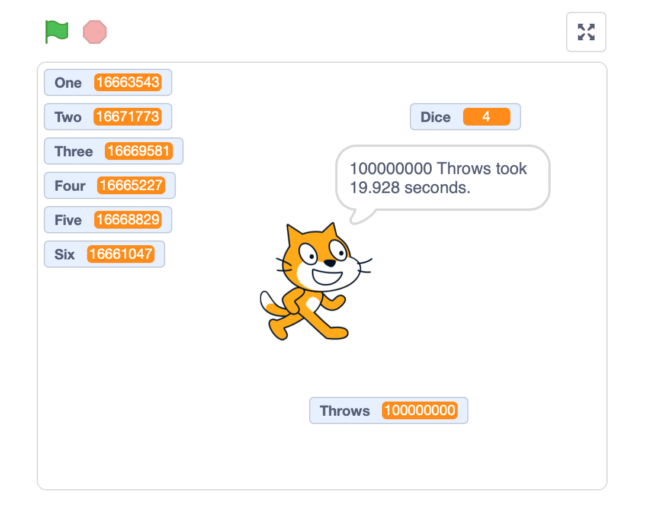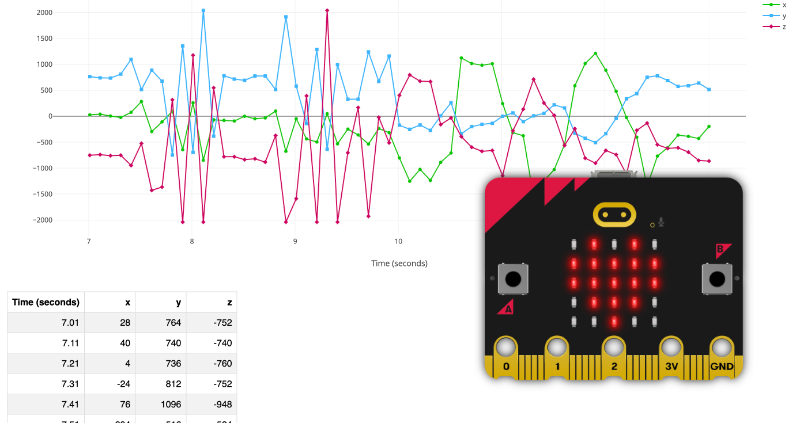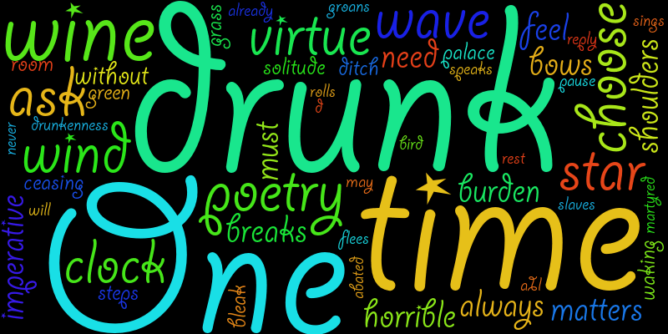I saw a tweet from James Abela:
Just found this amazing tool to convert any @scratch project into a #Mac #App. You can now literally use this kid’s tool to put apps together! Incredible and I managed this in less than a minute! #everyonecancode #scratch #appinamin #coding How to make a Scratch Project into a Mac OS app in under 1 minute – YouTube
The TurboWarp Packager Converts Scratch projects into HTML files, zip archives, or executable programs for Windows, macOS, and Linux. but it is linked to several tools that are part of TurboWarp:
TurboWarp is a Scratch mod that compiles projects to JavaScript to make them run really fast.
Now the sort of thing I do with scratch is certainly not in need of speeding up or turned into an application! But I have seen many really complicated scratch programs, but my needs are simple.
I did recall a maths project we made in class a couple of years ago, when working on probability & chance. The project throws dices a number of times. Of course the class wanted to run it many many times, but it got a bit slow once we got to 10 million throws.
Here is the Project on Scratch:
And in Turbowarp:
For me 100 million throws took 1056.443 seconds in Scratch and 21.784 seconds in Turbowarp. I guess device, browser, operating system and the direction of the wind might change these results a bit. I also expect the code could be a lot better;-)



